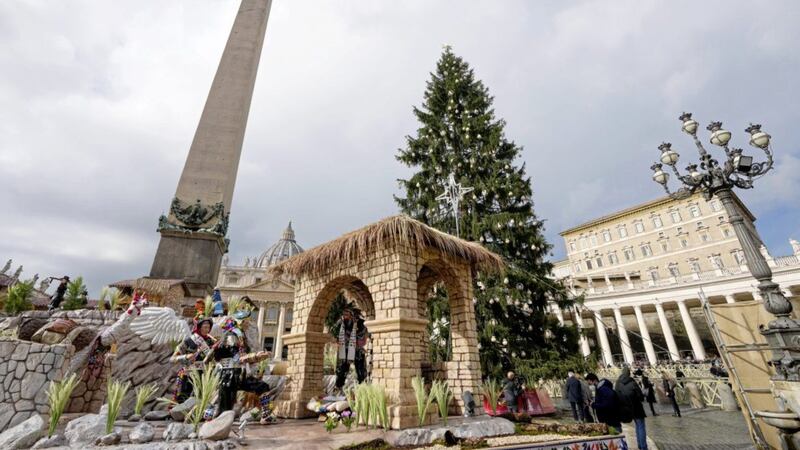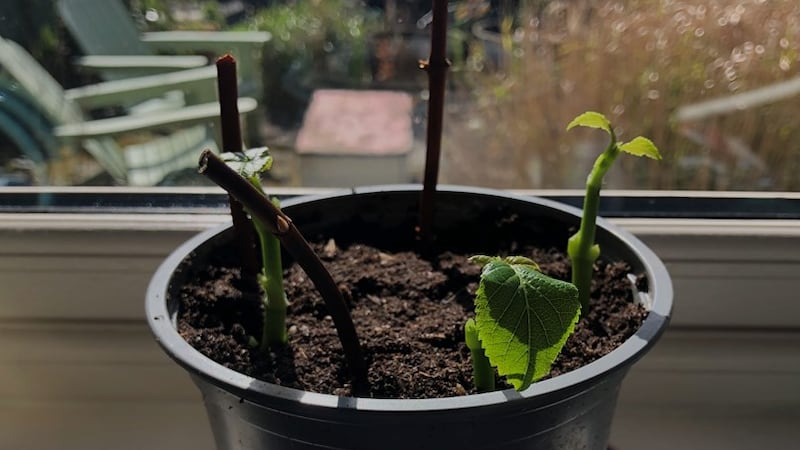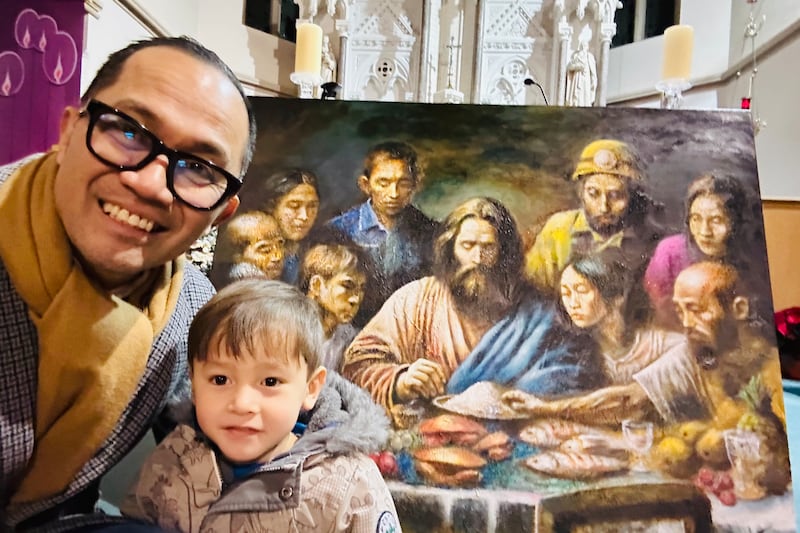THE words of John the Baptist's father, Zechariah, in Luke 1 make interesting reading. In terms reminiscent of Old Testament prophets like Isaiah and Malachi, this old man enthuses that God is once more at work, keeping the promises He's been making since the days of Abraham in Genesis. We hear words like redemption, salvation, mercy, rescue, peace.
Jesus, the supernatural 'Prince of Peace', would be born about six months after this and their son John, whose own conception and birth seemed nothing short of miraculous, would help make things ready. Zechariah and his wife Elizabeth were ecstatic.
It's normal to celebrate when a child is born. There is something quite sacred and wonderful about it and for a time our hearts feel a little hope that somehow, maybe things could be better. But any mention of peace soon has the cynics snorting in derision.
Peace? In this cruel, selfish world? Dream on - 2,000 more years of enmity and strife, war and death since Christ came make us wonder about these promises we repeat each year at Christmas. 'Peace on earth' seems most unlikely. Why keep on believing?
The Bible teaches Christ will one day come as the glorious Son of God to end evil and bring about heavenly peace on earth but there was something else He did first which is possibly even more profound - he "became flesh" and lived among us as the "Son of Man" to share our pain and sorrow.
Zechariah's prophecy in Luke 1 doesn't describe peace as the absence of trouble and tragedy, but the presence of the Lord with his people in our present trials.
"The Light" comes to us from heaven, shining on us to "guide our feet into the path of peace" even while we still live in darkness and the shadow of death.
We suffer illness and bereavement, natural anxieties and fears of violence, conflict, natural or economic disaster. One day the Lord will make all things new and that will be powerful and wonderful but far more amazing was that He first became vulnerable himself: "Immanuel, God with us."
He was born out in the cold in a place where a paranoid king would murder infants to safeguard his throne. His family were refugees for a time. He and his siblings grew up in a small, ordinary town.
He celebrated with friends at a wedding and on another occasion wept with friends in a cemetery. He experienced love and rejection, times of joy and disappointment. He lived and suffered in this world and tasted its most painful darkness and he did it in such a way as to shine the light of God's grace and show us the path into peace.
Let's consider some of his teaching and example.
In the Beatitudes at the start of the Sermon on the Mount Jesus declares this spiritual principle - that peacemakers shall be called "sons of God".
Those who work to bring about peace are doing a Christlike thing and will be blessed by God. Later in the same sermon he instructs us to love our enemies and pray for those who persecute us.
On occasions Jesus very openly predicted opposition and trouble for his followers saying even families would be tragically divided - not peace in the short term, but a sword.
However, at the Last Supper he promised to leave his own unique quality of peace with his frightened disciples. Yes, he felt initially overwhelmed with sorrow in the Garden of Gethsemane but he prayed and we observe his remarkable dignity through the next hours of torture.
He didn't resist or retaliate with curses or threats. He told his followers to sheathe their swords. He prayed forgiveness for his executioners and promised paradise to a penitent criminal. As his body succumbed to death he entrusted his spirit to his Father.
Jesus walked the path of peace and enables us to do likewise.
Like hope, peace is not a subjective thing at the mercy of changing circumstances, but a spiritual reality anchored in our relationship with God.
He is faithful, his words can be trusted. We can know peace as those reconciled to God because Jesus came to save us from our sins.
While the evening news gives us cause for some concern about this present world, Christians can still have a sense of peace, assured we are forgiven, we are children of God, our destiny is heaven and resurrection and everlasting life.
Even now we are not alone. The Father and Son give the Spirit to live in us and guide us in this truth and in paths of righteousness.
Here is our identity, our sense of belonging, our meaning, our direction, our sense of purpose - all the things that help us be at peace within ourselves - and they are all secure in the love of Jesus, the child in the manger, the Man of Galilee, the Christ of the cross and the empty tomb.
This is why the Apostle Paul could write as confidently and cheerfully as he did to his Christian friends in Philippi. Writing from a stinking dungeon, under sentence of death, he writes, "Rejoice in the Lord always." Pray about everything. Think deeply on the truths God reveals in Scripture. And God will be with us and give us his remarkable Christlike peace.
And let's not miss one last powerful lesson here. When we are at peace with God through Christ and the forgiveness of our sins, we are better equipped to be at peace with others.
Some people may resent and hate us but we don't have to hate them back. Our Saviour delivers us from the caustic bitterness that eats a person from the inside.
He frees us to forgive even as we have been forgiven, to love even as we are loved, to "turn from evil and do good, to seek peace and pursue it". It doesn't mean we have to agree with everything others may say or do but Christians are set at liberty to contribute positively to community and society for everyone's benefit because we are learning to walk in the footsteps of the Prince of Peace.
The Apostle James writes of "heavenly wisdom" like this as a stark contrast to the bitter envy and selfish ambition of this world because it is "pure, peace loving, considerate, submissive, full of mercy and good fruit, impartial and sincere".
He says: "Peacemakers who sow the seeds of peace raise a harvest of righteousness."
Amen to that this Christmas.
The Rev Andrew Watson is minister of the Presbyterian congregation at Cairncastle, Co Antrim. He blogs at wordsurfers.com.







